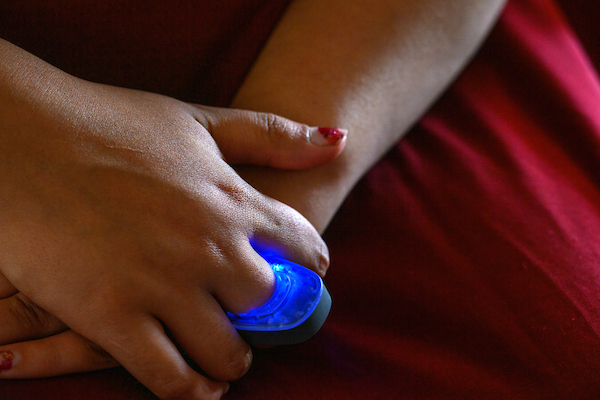
Washington State University researcher finds Harris may have edge in energizing supporters
Listen
(Runtime 0:58)
Read
A research study at Washington State University that monitored audiences’ live reactions to the Tuesday presidential debate showed a bigger emotional response from Democratic voters than Republicans.
The study used rings worn by participants that measure sweat gland activity, an involuntary response triggered by the sympathetic nervous system in response to stress. All participants surveyed were local.
The results showed that Democratic voters perceived former President Donald Trump as a greater threat than Republicans perceived Vice President Kamala Harris.
“Democrat participants, all the way down at this unconscious, raw, evolutionarily derived brain level, perceive Trump as a threat,” said researcher and professor Paul Bolls. “Republicans, their bodies are not responding particularly to Harris as if she is literally a threat.”
Bolls conducted the study with Yen-I Lee, who co-directs the Murrow Media Mind Lab with him. Bolls said people who perceive a political opponent as if the opponent were a physical threat could affect the political action a person takes or how that person talks about politics.
“How Harris performed in the debate appears to be more effective at energizing Democrat voters than how Trump performed in the debate at energizing Republican voters at this physiological, raw, motivational level,” Bolls said.
In a post-debate survey, participants were asked if they would be willing to donate a portion of a $50 online gift card they received for participation. The donation would support the party’s candidate.
“Democrats were more willing to donate part of their incentive to the Harris campaign than Republicans were willing to donate part of their incentive to the Trump campaign,” Bolls said.
Democrats also were willing to donate a greater percentage of their reward, Bolls said. Among Democrats, the average amount participants were willing to donate was about $10. For Republicans, it was slightly under $5.
Bolls was able to recruit 18 Democrats and 14 Republicans to participate in the study. Although it’s a small sample, Bolls said he believes the amount of data collected per person makes it scientifically relevant.
“To me, that increases the scientific validity of even this small sample study. As a scientist, you wanna be scientifically cautious. But not scientifically timid,” he said.
The study also found that Democratic voters had a stronger favorable response to Harris than Republican voters did for Trump.
Bolls said the difference might give Harris a leg up among some undecided voters in what’s called “the enthusiasm gap.”
That doesn’t make a big difference for voters who have already decided who they want to vote for, Bolls said. However, it could affect the small percentage of undecided voters.
“Debates rarely change minds,” Bolls said. “They might impact the likelihood (of someone) to actually show up and vote.”















